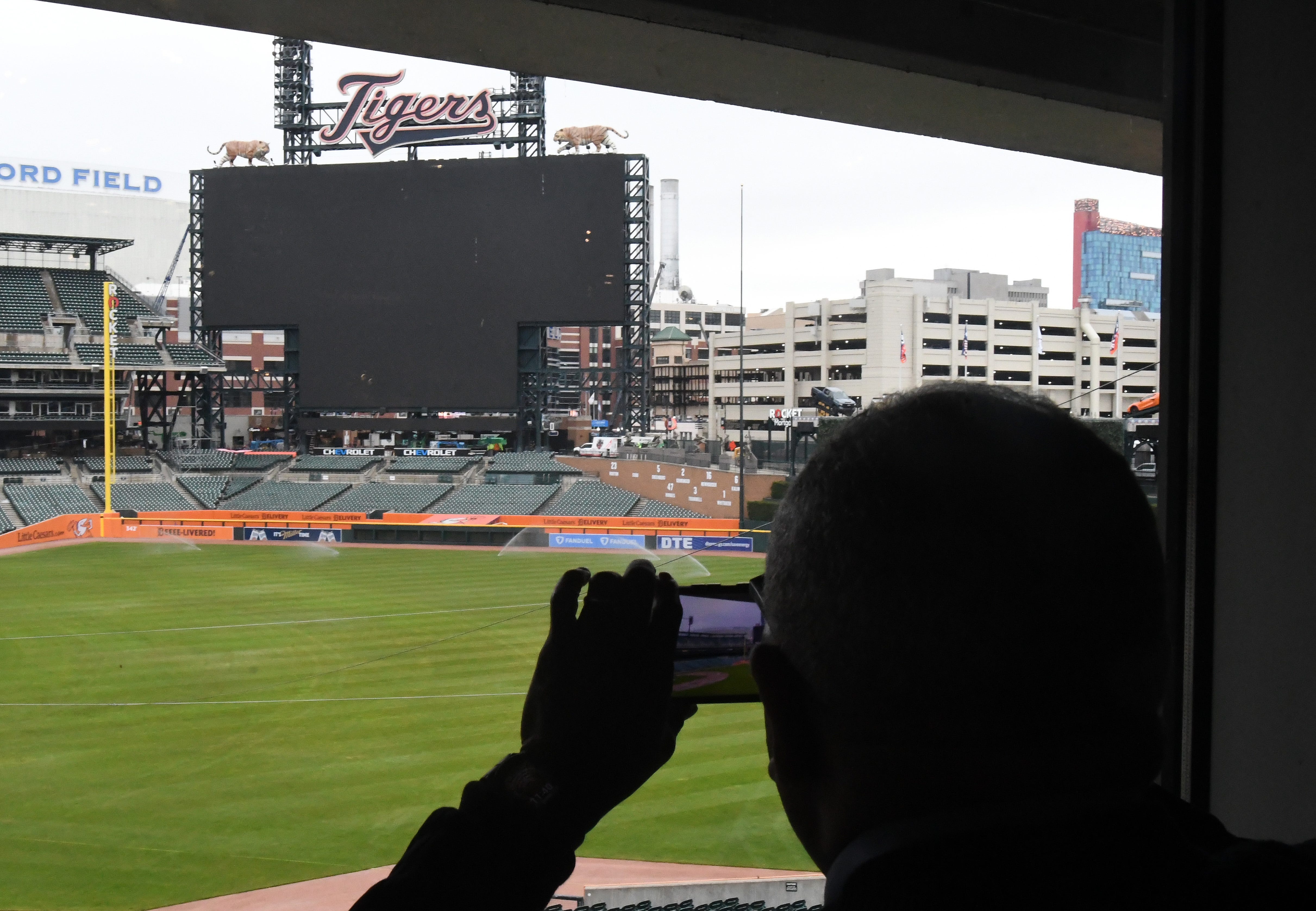Tigers unveil sensory room at Comerica Park; LCA will be following suit soon
 Tony Paul
Tony Paul
Detroit — The Tigers are hoping to make some noise in 2024.
But they're also ready to accommodate their fans who want some quiet and calm.
The Tigers on Wednesday morning cut the ribbon for their new sensory room, for fans with sensory-processing needs, including those with autism. The sensory room is located outside Section 210 at Comerica Park and is available starting on Opening Day and for all games and events.

Comerica Park becomes the latest sports arena in Detroit to open a sensory room, after Ford Field, home of the Lions, unveiled one in 2023. Little Caesars Arena will unveil one soon, to be open by the fall.
The Comerica Park and LCA sensory rooms are funded by the Detroit Tigers' and Detroit Red Wings' foundations, and are equipped with bubble walls, bean-bag chairs and sensory toys. The Tigers' room is decorated in blue, orange and white, with one wall featuring the Olde English D.
"It means the world to see the community come around people with disabilities to help pave a way for everybody to experience the game at their own pace," said Sean Culkin, an ambassador with KultureCity, which partnered on the rooms at Comerica Park and LCA. "Those individuals are often burdened with having to make themselves feel comfortable in a world that is uncomfortable for them. They're often told that games like this are not for them, that basically, if you do not enjoy the game, if you cannot make it through the whole play, then please step aside for those that can."
Culkin said it's good to see "the community realize the error in that logic."
People with sensory-processing needs, including those with autism, often have a difficult time in crowds with loud noises, like sporting events. That often discourages parents from attending games with autistic children, for fear they might have to leave an inning, a quarter or a period into the game.
Sensory rooms, which are increasing in popularity at sporting events, provide those fans with a space to make those fans, including those with autism, a calming experience in a place where the activity outside the door often is anything but calm. They are outfitted for people of all ages. A sign nearby designates it as a "quiet area."
Michigan State's Breslin Center recently opened a sensory room, which, along with the Ford Field sensory room, was outfitted by local philanthropist Fredi Bello, or Fredi the Pizzaman, owner of the popular pizza restaurant in Melvindale whose foundation has spent more than $100,000 on building dozens of sensory rooms across the state. More than anyone, Bello — who has an autistic son — has brought this issue to the forefront in Metro Detroit.
"One of our pillars is growing the game through access," said Shannon Lapsley, director of foundations for Ilitch Sports & Entertainment. "It's really important for us to partner with KultureCity to bring this into the ballpark."
Said Amanda Vought, vice president of guest strategy for the Ilitch organization: "This sensory room is a testament to our commitment to inclusivity and accessibility for all our guests. We firmly believe in creating an environment where everyone will feel welcome."
tpaul@detroitnews.com
@tonypaul1984